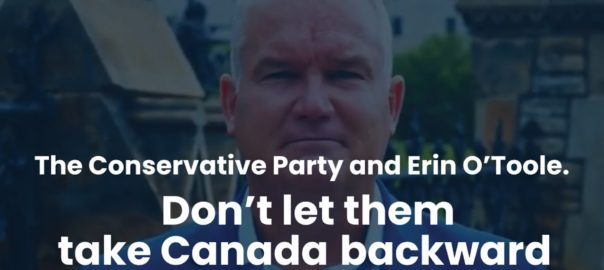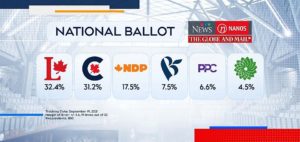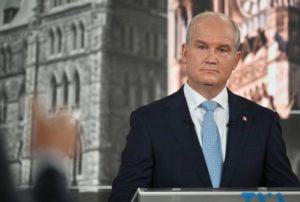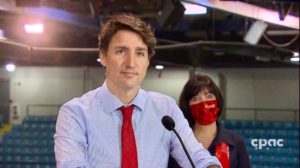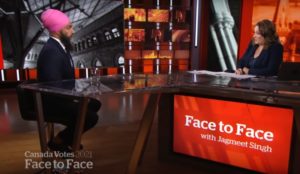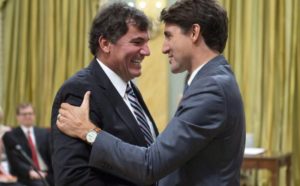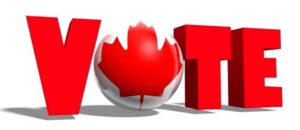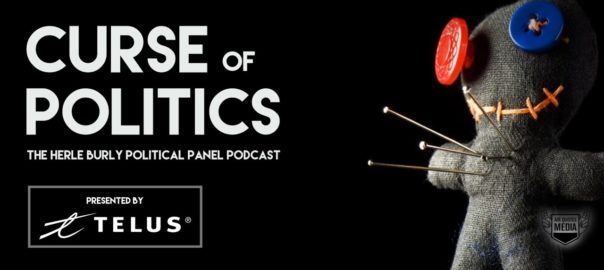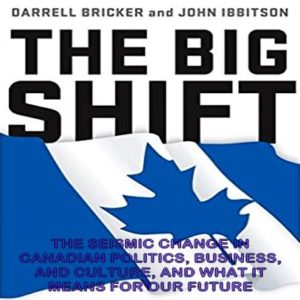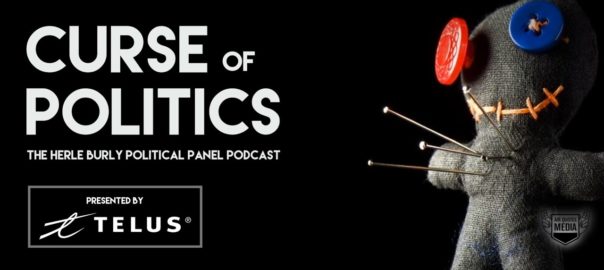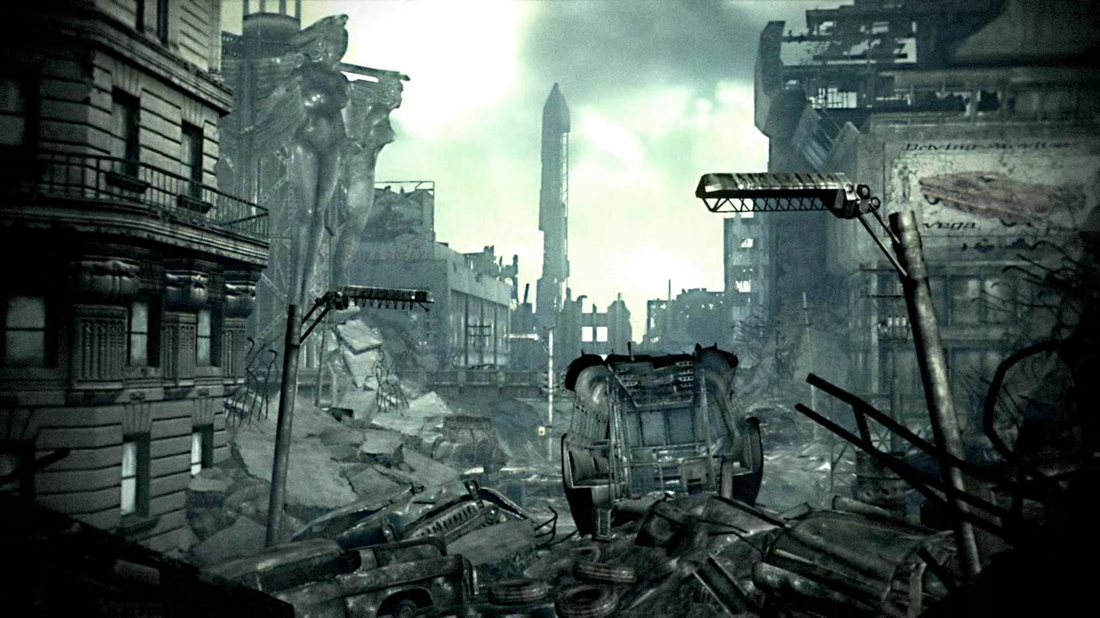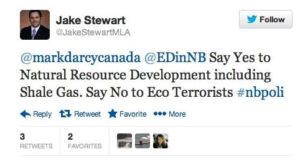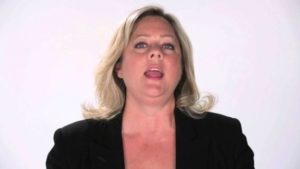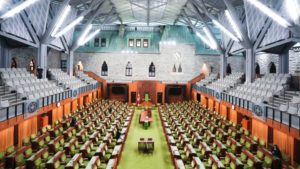
Poor Erin O’Toole, the beleaguered leader of the Conservative Party of Canada.
When Mr. O’Toole ran for the leadership of the Conservative Party of Canada, or order to defeat his main rival, Nova Scotia’s Peter MacKay — a well-experienced senior Minister of the Crown in the near decade the Conservatives held power in Ottawa, from early 2006 through until late 2015 — Mr. O’Toole fashioned himself as a True Blue, Harperite social conservative who, although he would not allow a vote on abortion on the floor of the House of Commons were he to become Prime Minister of Canada, stood with and for the socially conservative values held by many members of the Conservative Party.
In a ranked ballot vote held on August 24, 2020, in order to secure victory and the leadership of the Conservative Party, the former Minister of Veterans Affairs in the Stephen Harper government, Erin O’Toole, explicitly sought the support of socially conservative leadership hopefuls, Leslyn Lewis and Derek Sloan, to secure the winning votes in the 3rd round of voting, with 19,271 winning ballots cast in his favour, with his rival MacKay securing only 14,528 votes.
First time leadership hopeful, Leslyn Lewis, had finished in third place on the second ballot with 10,140 votes — many of those votes going to O’Toole on the third ballot. Sloan finished last on the first ballot, with 4,864 votes. Mere months later, on January 18, 2021, Erin O’Toole kicked Derek Sloan out of the Conservative caucus. Note should be made that when Mr. O’Toole recently appointed elected members of the Conservative Party to form the Opposition’s Shadow Cabinet, social conservative Leslyn Lewis did not make the cut.

During the recent federal election, much to the chagrin of the Conservative candidates seeking election or re-election, when Erin O’Toole released the Conservative Party platform early in the campaign, in mid-August, Tory candidates were taken aback that the party’s platform came out foresquare in favour of a carbon tax — contrary to long standing Conservative party policy.
In fact, the Tory platform read, as many disgruntled Conservative Party members complained, as a “red” document, or a Liberal Party lite policy document.
In order to win over Canadians who live in the vote rich Metro Toronto and Metro Vancouver regions of Canada, Erin O’Toole had created a platform document that almost entirely jettisoned Conservative Party dogma, and where it didn’t, during the course of the election campaign, O’Toole “re-adjusted” Tory policy on the fly, all in the hopes of securing centrist urban votes.
The appeasement strategy did not work — under O’Toole’s leadership, the Tories lost four Metro Vancouver seats, while standing pat in Metro Toronto, where the Liberal Party went onto win a near overwhelming victory.
Erin O’Toole’s Conservative Party enters the House of Commons down two seats, in a party riven by division, with a petition launched days ago by prominent Tory Senator Denise Batters calling for a leadership review within 6 months, specifically pointing to Mr. O’Toole’s loss of the 2021 federal election, and his party policy reversals during the course of the election campaign.
#CPC Members:
Today I launched a petition to review Erin O’Toole’s CPC leadership within 6 months.He reversed core policies without input from members & caucus, then lost #Elxn44 by every measure.
Our members deserve to have a say!
Sign at: https://t.co/u20cvWmiJ6
VIDEO: pic.twitter.com/GLPyfC0X3w— Sen. Denise Batters (@denisebatters) November 15, 2021
To make matters worse for Mr. O’Toole, as the 44th session of the Canadian Parliament gets underway, at a press conference held yesterday morning in Ottawa, Government House Leader Mark Holland told reporters that he believes it would be “statistically improbable” for several Tory MPs to have valid medical exemptions to COVID-19 vaccination — and those who do have them should provide “assurances” they were given for legitimate reasons.
“The Conservative caucus is 119 people,” Mr. Holland told reporters. “Statistically, the likelihood that they would have multiple people who are exempt … is extraordinarily low. There might be some possibility of it but I suppose there’s a possibility that that chair could fly,” he said, pointing to a chair in the room.
If one Conservative MP is claiming an exemption, Holland said, that is “exceptionally unlikely but possible.” More than one Conservative MP claiming an exemption, he said, would be “statistically impossible.”
To be fair, Erin O’Toole’s centrist position on the issues will play much better with the electorate and all but assure the Conservatives victory at the polls, when voters tire of the Liberal Party. Politics is like major sport, though: you’re ‘hired’ … only to be fired at some point in the not-too-distant future.
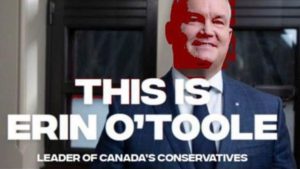
Still and all, Mr. O’Toole is hardly signaling defeat at the beginning of the current session of Parliament.
Mr. O’Toole has stipulated that battling inflation will be top of mind, by re-naming Mr. Mean, Pierre Poilievre, as his finance critic earlier this month. Poilievre has repeatedly warned about the risk of inflation during the pandemic, and has lately taken aim at the $101.4-billion stimulus package promised in the spring budget, which he now dubs the “$100-billion slush fund.”
In an interview on Friday, O’Toole told National Post columnist John Ivison that his party’s major focus will be on “the economic situation in the country.”
“There’s an inflation crisis, there’s lack of confidence, wages are flat, the cost of everything is going up, so people are actually losing purchasing power as if they were getting their wages cut, and we’ve never seen the country more fractured,” O’Toole said.
Tory House leader Gerald Deltell has said his party was supportive of the initial emergency spending on COVID-19 aid measures because of the unprecedented lockdowns that decimated the economy and forced businesses to close.
But the Tories will now argue that the government was too slow to adjust to changing circumstances, pumping too much money into the economy while running up massive deficits. The result, Deltell has said: businesses are having trouble finding workers & Canadian families are getting hit with rising prices.
For the most part, though, Mr. Deltell told reporters in a press conference held in Ottawa last week, that he could not get into whether his party will oppose various government policies until he sees what’s actually put forward on paper by the Liberals. The Conservative caucus met for two full days prior to the beginning of this session of Parliament to build a strategic political game plan.
“We have a strategy behind each and every issue,” says Deltell. “I can’t be wide open on the strategy right now.”
Here’s CPAC’s Peter Van Dusen in discussion on Parliament’s return, with the Toronto Star’s Susan Delacourt, the National Post’s John Ivison, and Globe and Mail Ottawa Bureau Chief, Ian Bailey …
See you all back here tomorrow. Thank you for reading VanRamblings.
